
Keynote Speakers
Announcing the Keynote Speakers for CCECE 2015.
Ken Meade, Director, Environment and Aboriginal Affairs,
Emera Newfoundland and Labrador
Emera Newfoundland and Labrador
Time and Date: 6:00pm - 8:00pm • Sunday, May 3, 2015
Location: Room 200A, Halifax World Trade and Convention Centre
Bio: Ken is responsible for environmental approvals, compliance programs and Aboriginal engagement for the Maritime Link Transmission Project. As part of the aboriginal engagement responsibilities, Ken leads the formal Consultation processes as well as regulatory and stakeholder consultation.
Prior to joining Emera Newfoundland and Labrador in March 2011, Ken spent 16 years with Nova Scotia Power, starting as a Biologist and most recently as the Manager, Environmental Projects and Services. Aboriginal engagement has been growing area of responsibility for Ken over the last 10 years, and as it relates to these activities. Ken has a breadth of experience in dealing with environmental standards, policies and processes at both the regional and national levels.
Ken holds two degrees, a Bachelor of Science from Acadia University and a Master of Environmental Studies from Dalhousie University.
Feridun Hamdullahpur, President & Vice-Chancellor, University of Waterloo
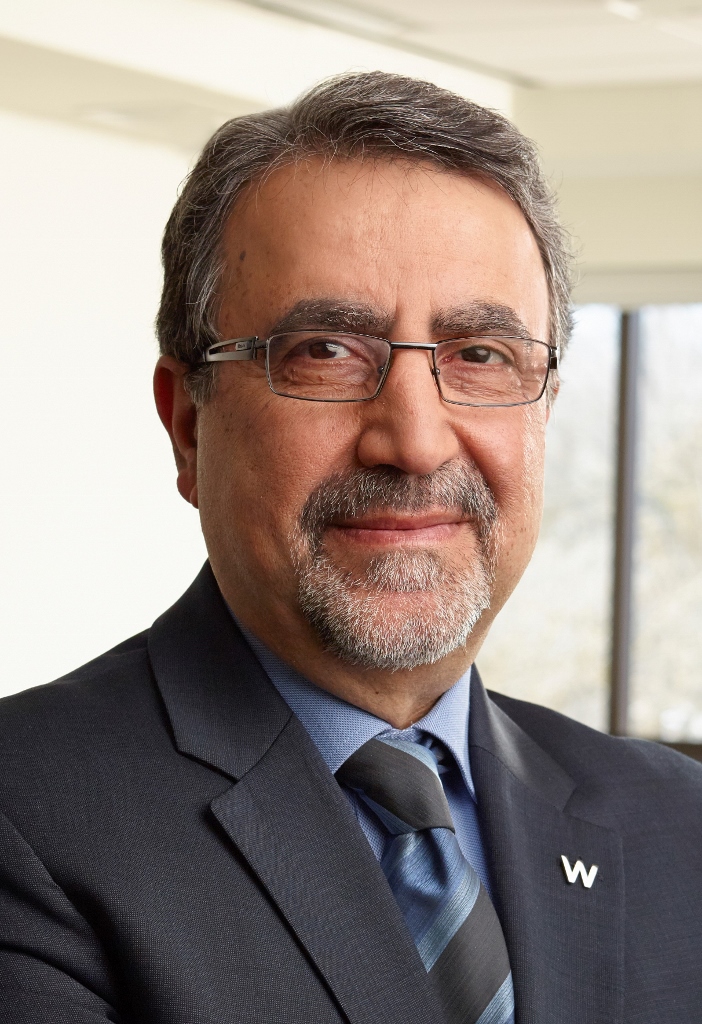
Talk Title: PASSION FOR LEARNING - From Research to Impact
Time and Date: 8:40am - 9:40am • Monday, May 4, 2015
Location: Room 200B, Halifax World Trade and Convention Centre
Talk Abstract: In this new century, universities are increasingly associated with economic prosperity in a broader sense. There is an expectation that we fuel economic growth and dynamism not only by releasing new knowledge into our communities; not only by developing graduates with skills and credentials; but by providing enabling environments for knowledge, talent, commercialization, business incubation and acceleration.
This is the public’s expectation of universities in today’s political and economic climate. This is especially true of universities rooted in the Science-Tech-Engineering and Math disciplines, or ‘STEM’ disciplines.
While maintaining a rich grounding in the liberal arts remains essential to developing a broad cross section of talented, informed, communicative graduates, those STEM disciplines are increasingly called upon to give our national economies an innovative edge.
Bio: Feridun Hamdullahpur was appointed president and vice-chancellor of the University of Waterloo on March 11, 2011.
Appointed to the position of president and vice-chancellor from his prior role as vice-president, academic and provost of the University of Waterloo, Dr. Hamdullahpur served as vice-president, research and international at Carleton University from 2001 to 2006 and as provost from 2006-2009.
A professor of mechanical engineering, Dr. Hamdullahpur earned his bachelor's and master's degrees at the Technical University of Istanbul, Turkey. He was awarded his Ph.D. in chemical engineering by the Technical University of Nova Scotia, and throughout his career has been an active researcher in thermo-fluids and energy engineering. He was named a Fellow of the Canadian Academy of Engineering in June, 2014.
Feridun is proud to serve as chair of the U15 group of Canada’s research-intensive universities and serves as vice-chair of the world-leading Waterloo Global Science Initiative.
In acknowledgement of President Hamdullahpur’s leadership in education and innovation, he was presented with the Queen Elizabeth II Diamond Jubilee Medal in January, 2013.
NSERC Lunch Lecture
Talk Title: NSERC News and How To Prepare a Discovery Grant Application
Time and Date: 12:00am - 1:40pm • Monday, May 4, 2015
Location: Room 200B, Halifax World Trade and Convention Centre
Speakers: Diane Charles, Team Leader Engineering Department
Sophie Debrus, Program Officer Engineering Department
James McFarlane, President of ISE, O.C., C.D., P.Eng. FCAE
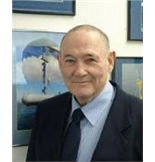
Talk Title: The Evolution of Underwater Work Capability in British Columbia
Time and Date: 8:40am - 9:40am • Tuesday, May 5, 2015
Location: Room 200B, Halifax World Trade and Convention Centre
Talk Abstract: Underwater vehicle development in Canada has been underway for more than 40 years. Most of this work has been carried out in British Columbia. The developments include Manned Submersibles, ROVs and AUVs. The user of these vehicles includes offshore petroleum, telephone cable maintenance, science, surveying, salvage, and military.
With ROV systems being the technology with the most maturity, a description of this evolution will be described. Why ROV technology came to be, and how. Where ROV technology sits today and how it now contributes to multi-functional platforms will also be detailed.
For autonomous technologies, the AUV platforms that were first developed in BC close to 30 years ago with ISE’s Theseus AUV, specifically for the Canadian Government’s usage in the Arctic will be discussed. How some of the development and operational learnings with Theseus applied directly to the next generation Arctic Explorer AUVs is also described.
The Arctic Explorer AUVs and their survey data collection required as part of Canada’s submission for sovereignty over submarine areas under the United Nations Convention on the Law of the Sea (UNCLOS), Article 76 becomes a part of this evolution of BC subsea systems.
Bio: Dr. McFarlane served in the Canadian Armed Forces, both afloat and ashore. During this 18 year period he held among others the positions of Special Projects Officer, Senior Structural Engineer and Staff Officer Construction on the staff of the Canadian Naval Submarine Technical Representatives with technical responsibilities related to the Canada Oberon Class submarines built in England. Dr. McFarlane also obtained bridge and engine room watch keeping tickets. On his return from England Dr. McFarlane was appointed Senior Structural Engineer and Project System Engineer for a diving tender and Project Manager for the SDL-I Diver Lockout Submersible.
Following his retirement from the Canadian Forces as a Lieutenant Commander, Dr. McFarlane joined International Hydrodynamics as Vice President of Engineering and Operations. In this capacity he had personal responsibility for development, construction, trials and operations of the company’s submersibles, their ancillary equipment and launch and recovery systems.
Dr. McFarlane is the founder and current president of ISE since 1974 and has been involved with the design, construction, and operation of manned, tethered and untethered Remotely Operated Vehicles as well as subsystems of these vehicles include manipulators and computer control systems. Since that time, Dr. McFarlane has been a part of engineering teams that have built over 400 robotic manipulators and over 200 vehicles.
Dr. McFarlane is the author of many papers on submarines, manned submersibles, ROVs and AUVs (Autonomous Underwater Vehicles). He has also made keynote presentations in Europe, Southeast Asia, USA and Canada. Dr. McFarlane has served on many committees for international meeting and as a guest speaker at many conferences. He has also received many awards.
Mohamed Kamel, Director, University of Waterloo
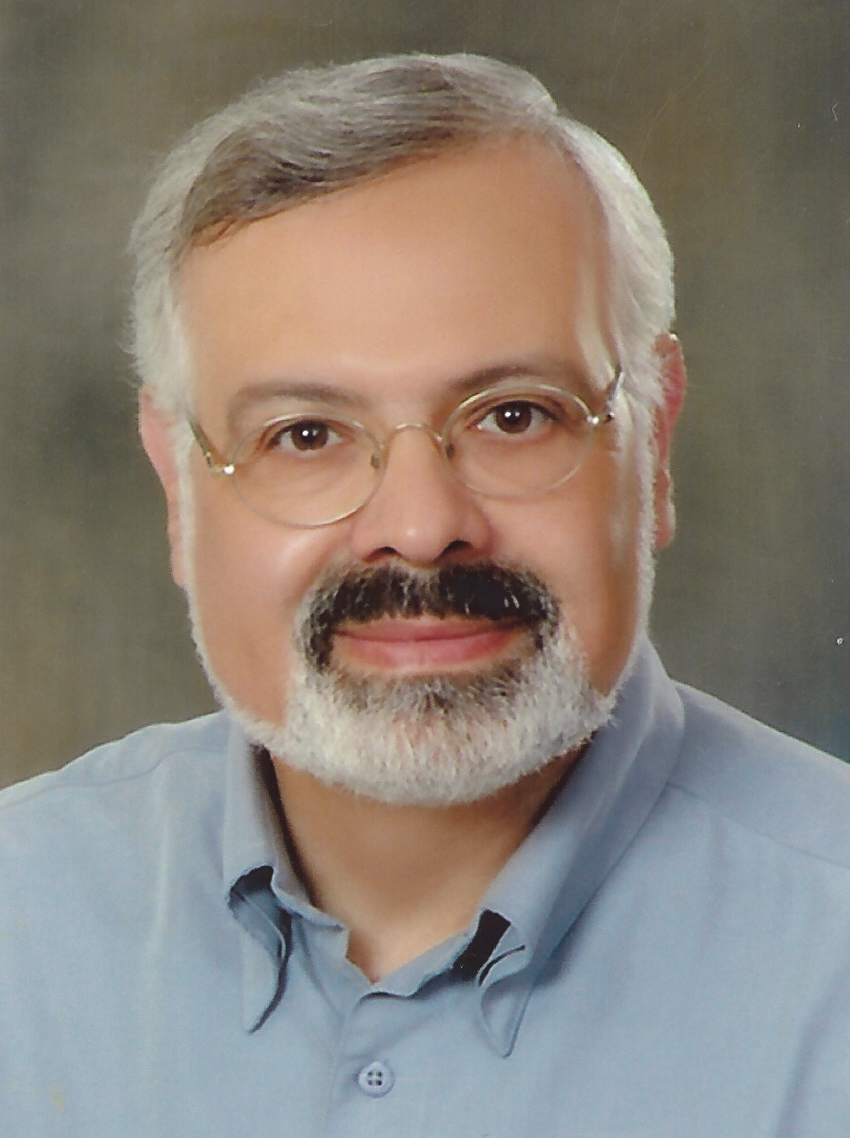
Talk Title: McNaughton Medalist Lunch Lecture
Time and Date: 12:00pm - 1:40pm • Tuesday, May 5, 2015
Location: Room 200B, Halifax World Trade and Convention Centre
Talk Abstract: To effectively use data repositories, tools to organize, discover, extract and share knowledge embedded in these data repositories need to be developed. These tools will help in providing context, facilitating interactions, efficient organization, efficient delivery, navigation and retrieval. Although there exist many data mining and analysis tools, many are limited in terms of their representation of objects. In this talk I will present an overview of a number of research projects within my research group that attempt to address developing innovative data and knowledge mining tools. In specific, I will report on our work in feature ranking, text representation beyond words, classification and clustering methods, use of phrases and concepts for clustering documents, and the use of multi-classification and multi-clustering methods to improve the mining effectiveness and capture different views of the resources.
Bio: Mohamed S. Kamel received the B.Sc. (Hons) EE (Alexandria University), M.A.Sc (McMaster University), Ph.D (University of Toronto). He joined the University of Waterloo, Canada in 1985 where he is at present University Research Chair Professor and Director of the Center for Pattern Analysis and Machine Intelligence at the Department of Electrical and Computer Engineering.
Dr. Kamel's research interests are in Computational Intelligence, Pattern Recognition, Machine Learning and Cooperative Intelligent Systems. He has authored and co-authored over 500 papers in journals and conference proceedings, 17 edited volumes, 19 chapters in edited books, 2 patents and numerous technical and industrial project reports. Under his supervision, 91 Ph.D and M.A.SC students have completed their degrees.
He is the Editor-in-Chief of the International Journal of Robotics and Automation, Associate Editor of the Computational Intelligence journal, Pattern Recognition Letters, and Pattern Recognition Journal. He is also member of the editorial advisory board of the International Journal of Image and Graphics and the Intelligent Automation and Soft Computing journal. Dr. Kamel is Fellow of the Royal Society of Canada, Fellow of IEEE, Fellow of the Engineering Institute of Canada (EIC), Fellow of the Canadian Academy of Engineering (CAE) and Fellow of the International Association of Pattern Recognition (IAPR). He is co-founder of Virtek Vision Inc. of Waterloo (acquired by Gerber Technology Co. in 2008). He served as member of the board from 1992-2008 and VP research and development from 1987 to 1992.
John Leonard, Department of Mechanical Engineering and CSAIL, MIT
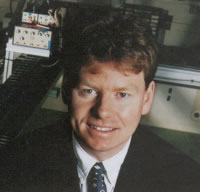
Talk Title: A Long-term View of Simultaneous Localization and Mapping for Mobile Robots
Time and Date: 8:40am - 9:40am • Wednesday, May 6, 2015
Location: Room 200B, Halifax World Trade and Convention Centre
Talk Abstract: This talk will discuss the critical role of mapping and localization in the development of self-driving vehicles. After a discussion of some of the recent amazing progress and open technical challenges in the development of self-driving vehicles, we will discuss the past, present and future of Simultaneous Localization and Mapping (SLAM) in robotics. We will review the history of SLAM research and will discuss some of the major challenges in SLAM, including choosing a map representation, developing algorithms for efficient state estimation, and solving for data association and loop closure. We will also present recent results on real-time dense mapping using RGB-D cameras and object-based mapping in dynamics environments.
Joint work with Tom Whelan, Michael Kaess, John McDonald, Hordur Johannsson, Maurice Fallon, David Rosen, Ross Finman, Paul Huang, Liam Paull, Nick Wang, Dehann Fourie, Jonathan How and Seth Teller.
Bio: John J. Leonard is a Professor of Mechanical and Ocean Engineering in the MIT Department of Mechanical Engineering. He is also a member of the MIT Computer Science and Artificial Intelligence Laboratory (CSAIL). His research addresses the problems of navigation, mapping, and persistent autonomy for autonomous mobile robots. Leonard was a pioneer in formulating the problem of Simultaneous Localization and Mapping (SLAM) in the mobile robotics research community. With his students and collaborators, he has developed several state-of-the-art robot navigation and mapping systems for robots operating in underwater and terrestrial environments. He has extensive experience deploying underwater robots systems for Navy missions such as mine-hunting and surveillance. He has lead several major initiatives for the Office of Naval Research, including a program to utilize SLAM for mine neutralization and program for cooperative navigation of multiple autonomous underwater vehicles and gliders. He was team leader for MIT's DARPA Urban Challenge team, which was one of eleven teams to qualify for the Urban Challenge final event and one of six teams to complete the race.
Prof. Leonard joined the MIT faculty in 1996, after five years as a Post-Doctoral Fellow and Research Scientist in the MIT Sea Grant Autonomous Underwater Vehicle (AUV) Laboratory. He is Co-Director of the Ford-MIT Alliance and Area Head for Ocean Science and Engineering in the MIT Department of Mechanical Engineering. He has served as an associate editor of the IEEE Journal of Oceanic Engineering and of the IEEE Transactions on Robotics and Automation. He was one of three guest editors for the 2008 IEEE Transactions on Robotics Special Issue on Visual SLAM. He is an advisory board member of the University of Michigan Department of Naval Architecture and the Robotics: Science and Systems Foundation.
He holds the degrees of B.S.E.E. in Electrical Engineering and Science from the University of Pennsylvania (1987) and D.Phil. in Engineering Science from the University of Oxford (1994). He is the recipient of a Thouron Award (1987), an NSF Career Award (1998), a Science Foundation Ireland E.T.S. Walton Visitor Award (2004), the Best Paper Award at ACM SenSys in 2004 (shared with D. Moore, D. Rus, and S. Teller), the Best Student Paper Award at IEEE ICRA 2005 (with R. Eustice and H. Singh), and the King-Sun Fu Memorial Best Transactions on Robotics Paper Award in 2006 (shared with R. Eustice and H. Singh). He was a finalist for the Best Automation Paper Award at ICRA 2011, the Best Paper Award at ICRA 2012, and the Best Student Paper Award at ICRA 2013. He was elected an IEEE Fellow in 2014.
Doug Wallace, Chairholder of CERC.OCEAN
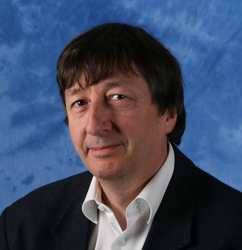
Talk Title: New Approaches to Observation of the Ocean Frontier
Time and Date: 12:00pm - 1:40pm • Wednesday, May 6, 2015
Location: Room 200B, Halifax World Trade and Convention Centre
Talk Abstract:The ocean is a frontier that defines, but also connects nations, continents, economies and communities and offers both risk and enormous opportunity. The ocean frontier sustains the Earth and human systems: it determines our climate and has moderated, delayed, and perhaps masked effects of human activity on the global environment. Some might argue that the ocean’s vastness and opacity to exploration, observation and communication have lulled us into a false sense of planetary security. The ocean frontier provides us, increasingly, with food and energy and sustains global trade, yet remains largely unexplored and unknown as well as dangerous. And it is changing: maybe faster than we can measure or comprehend. Arguably, with human population projected to approach 10 billion by 2100, the ocean is our “final frontier”. The presentation will provide an overview of ocean change and the trends in how we observe our ocean environment. The need and opportunities for improved methods of ocean observation associated with the growing requirement to manage ocean resources responsibly, and understand interactions of the ocean with other parts of the Earth System, will be highlighted.
Bio: Dr. Wallace is a world leader in developing new technologies to measure changes in the world’s oceans.
Before becoming Canada Excellence Research Chair in Ocean Science and Technology, Wallace was professor of marine chemistry at the Leibniz Institute of Marine Sciences in Kiel, Germany. There, he also served as deputy director and head of the Marine Biogeochemistry Research Division. He holds a PhD in chemical oceanography from Dalhousie University and a bachelor’s degree in environmental science from the University of East Anglia, United Kingdom.
Wallace spent more than a decade working as a scientist at the prestigious Brookhaven National Laboratory in the United States. He also made significant scientific contributions to his field through the Intergovernmental Panel on Climate Change, and the US Department of Energy, where he developed the first survey to measure the global distribution of fossil-fuel carbon in the oceans.
Wallace is highly skilled at building successful multidisciplinary research teams, including CARBOOCEAN, a five-year study of the ocean carbon cycle, SOLAS, a global project investigating interactions between the atmosphere and the ocean. He also led the development of an ocean and atmosphere observatory on the Cape Verde Islands off the West African coast.
As Canada Excellence Research Chair in Ocean Science and Technology, Douglas Wallace leads a research team working to help us predict and prepare for these threats by examining the causes and consequences of recent changes and building tools to detect and address them. With his team at Dalhousie University, Wallace is developing new observation instruments that are more sensitive to biogeochemical oceanic change than current methods of detection. Packages of these instruments are being stationed on research vessels, but also on commercial ships that will act as “volunteer” observing platforms as well as on autonomous vehicles.
As the scientific director of the two prominent research institutes hosted at Dalhousie University, the Institute for Ocean Research Enterprise (IORE) and the Marine Environmental Observation, Prediction and Response Network of Centre of Excellence (MEOPAR NCE), Wallace is playing a critical role in establishing a broad, long-term research agenda for the region and providing Canada with the best possible tools and scientific information available for making informed decisions about our oceans.